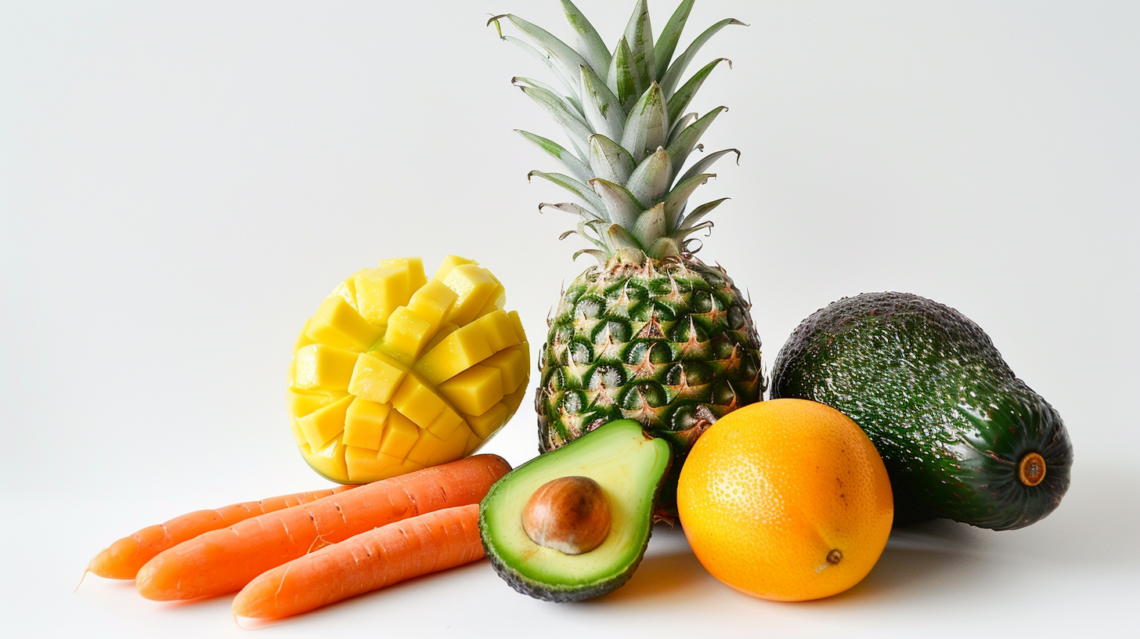
The Healthiest Fruits and Vegetables for the Spring
With the spring season (and warmer weather) comes more options for us to make easier, healthier choices when it comes to the foods that we are putting into our bodies each and every day. The healthier, more nutrient-rich foods that we eat, the better we will ultimately feel. Among the best sources of nutrients are fruits and vegetables. While you can enjoy any fruit or vegetable all year round by purchasing them canned, frozen, or even dried (which makes for a great healthy snack), nothing quite beats the quality and taste of produce that is fresh. That being said, it’s important to remember that when purchasing fruits and vegetables, there are also a few other factors that you should take into consideration, such as price as well as the types of fresh produce that you are choosing. Certain fruits and vegetables might cost a bit more than usual during certain times of year, such as winter, as this is a time when they aren’t as easily produced; while some grow better in the spring and summer, and also taste better depending on the season.
Below is a list of some of the best in-season fruits and vegetables for this time of year, in addition to the different ways in which they can benefit your health.
• Strawberries: This fruit is one you can never really go wrong with. It’s not only one of the most popular fruits of all, but did you know that there are as many as 10 different types of strawberries differing in everything from flavour, size, texture, and even colour.
Strawberries are also low in calories, fat, carbs, and are, of course, packed with nutrients, including being an excellent source of vitamins C and K, in addition to fibre, potassium, manganese, and folic acid. They are also known to help regulate blood sugar levels. Strawberries can be eaten as a standalone fruit, blended in a smoothie (along with other fruits), added to salads, in yogurt, and more.
• Pineapple: While oddly shaped – almost similar to that of a cactus – this is another fruit that is widely consumed during the spring and summer months. Despite their sweet taste, pineapples are also low in calories and packed with nutrients – including high compounds of both vitamin C and manganese. They’re also a good source of dietary fibre, as well as the enzyme known as bromelain, which can aid with digestion. While there’s no scientific evidence to back this up, there has been some thought that this particular enzyme can also help things like muscle soreness and other types of pain. Because of their high levels of vitamin C and thiamine, you may also find that the more pineapple you eat, the better your mood will be the more energy you’ll have. Pineapples can be incorporated into meals such as ham and pineapple pizza (when making this at home, try opting for a cauliflower-based crust), and more.
• Mango: This fruit, like the others, is rich in vitamins (everything from vitamin A to C, and D all the way to K) and other important nutrients. Studies have also linked mangoes and these nutrients to having the ability to improve things like digestive health, boost immunity, improve eyesight, and even potentially decrease the risk of developing certain cancers. Like strawberries, mangoes can also be added into smoothies, made into sorbet, or eaten alone.
• Avocado: While avocados might look and taste like they’re a vegetable, they actually belong to the fruit family. They’re considered high in fat, but monounsaturated fat, otherwise known as the “good” type of fat which can help to lower bad cholesterol, while containing close to 20 other vitamins and minerals that can help you fight off disease and infection, control blood pressure, improve your eye health, and also aid in cell repair during pregnancy.
• Carrots: This vegetable can be incorporated into a number of different meals in different ways. They’re also a good source of antioxidants, potassium, vitamin K, fibre, and beta carotene. They’re also a good vegetable to include in your diet if you’re someone who is trying to lose weight. In addition, carrots are also linked to decreased cholesterol levels, and are also great for your eye health.
Click here to learn more about eating smart in the spring season.

